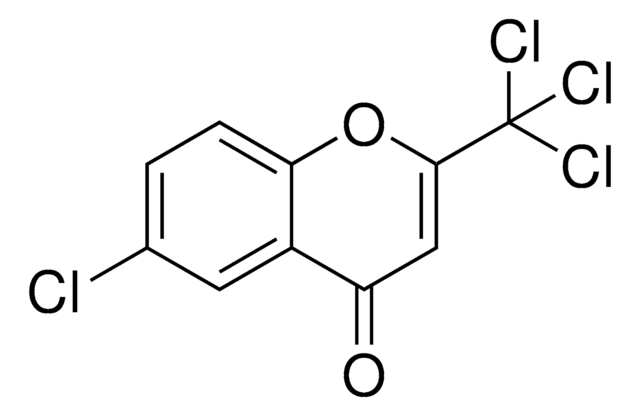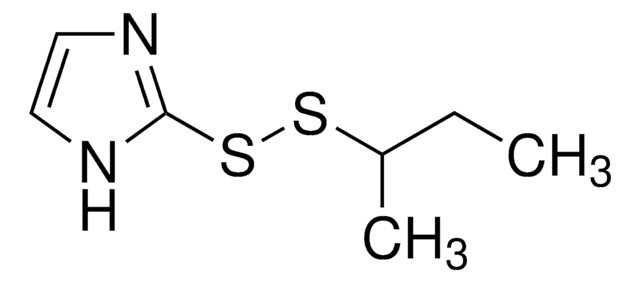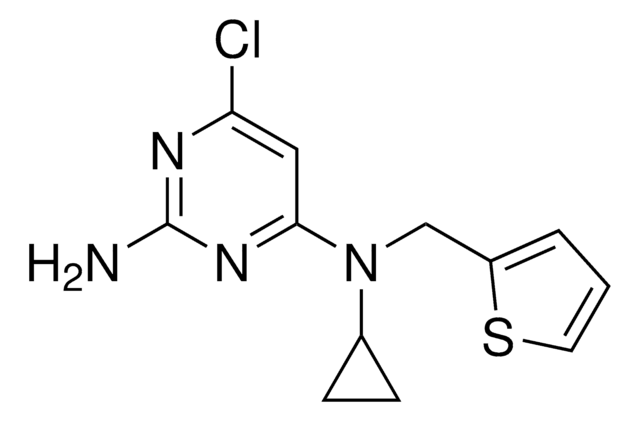F8807
FM19G11
≥98% (HPLC)
Synonym(s):
3-[(2,4-Dinitrobenzoyl)amino]-benzoic acid 2-(4-methylphenyl)-2-oxoethyl ester, [2-oxo-2-(p-tolyl)ethyl] 3-[(2,4-dinitrobenzoyl)amino]benzoate
About This Item
Recommended Products
Assay
≥98% (HPLC)
form
powder
color
off-white to light brown
solubility
DMSO: ≥40 mg/mL
storage temp.
2-8°C
SMILES string
Cc1ccc(cc1)C(=O)COC(=O)c2cccc(NC(=O)c3ccc(cc3[N+]([O-])=O)[N+]([O-])=O)c2
InChI
1S/C23H17N3O8/c1-14-5-7-15(8-6-14)21(27)13-34-23(29)16-3-2-4-17(11-16)24-22(28)19-10-9-18(25(30)31)12-20(19)26(32)33/h2-12H,13H2,1H3,(H,24,28)
InChI key
XVUOIWIIQVGWAJ-UHFFFAOYSA-N
Application
- to study the effects ofFM19G11-loaded gold nanoparticles (NPs) on self-renewal and proliferation of ependymal stem progenitor cells (epSPCs) of mice
- to study its effects on the O6-methylguanine DNA-methyltransferase (MGMT) expression in glioblastoma (GBM) cells
- to study its effects on microphthalmia-associated transcription factor (MITF) expression in melanoma cell line
Biochem/physiol Actions
Storage Class Code
11 - Combustible Solids
WGK
WGK 3
Flash Point(F)
Not applicable
Flash Point(C)
Not applicable
Certificates of Analysis (COA)
Search for Certificates of Analysis (COA) by entering the products Lot/Batch Number. Lot and Batch Numbers can be found on a product’s label following the words ‘Lot’ or ‘Batch’.
Already Own This Product?
Find documentation for the products that you have recently purchased in the Document Library.
Our team of scientists has experience in all areas of research including Life Science, Material Science, Chemical Synthesis, Chromatography, Analytical and many others.
Contact Technical Service








